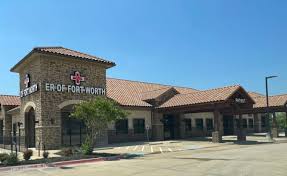
er wait times
When it comes to emergency care, time is everything. From a child’s fever to a possible heart attack, delays can feel like forever. One of the biggest concerns patients have when heading to the emergency room is ER wait times. These delays not only cause stress but can also worsen health conditions if treatment isn’t administered quickly.
At ER OF FORT WORTH, we believe that emergency care should be immediate, compassionate, and stress-free. That’s why we’ve compiled everything you need to know about ER wait times, how they work, and what you can do to reduce your wait and get treated faster.
What Are ER Wait Times?
ER wait time refers to the period between when you arrive at an emergency room and when you are seen by a healthcare professional. These times can vary based on:
- Severity of your condition
- Number of patients waiting
- Available doctors and staff
- Hospital or facility type (public, private, or freestanding)
Why ER Wait Times Matter
Waiting too long in an emergency room can lead to more serious complications, especially if your condition is urgent. Long waits can also lead to:
- Increased pain and discomfort
- Anxiety for patients and family
- Potential health risks from delayed treatment
At ER OF FORT WORTH, we understand how stressful this can be. That’s why we prioritize short wait times and immediate attention.
Common Factors Affecting ER Wait Times
1. Triage System
Most ERs use a triage system that assesses the severity of your condition. Critical cases like chest pain or head trauma are treated first. Less critical issues might wait longer.
2. Time of Day and Day of Week
ERs are often busiest during evenings and weekends. Holidays can also cause spikes in patient traffic.
3. Staff Availability
Staff shortages, especially in larger hospitals, can increase waiting times. Some patients wait hours before seeing a doctor.
4. Type of ER Facility
Freestanding emergency rooms like ER OF FORT WORTH tend to offer faster service than large hospital ERs. We are fully equipped but not overloaded with patient traffic.
How ER OF FORT WORTH Reduces Your Wait Time
We’ve designed our emergency care facility to prioritize speed, accuracy, and comfort. Here’s how we reduce ER wait times:
- No Waiting Policy: Most patients are seen immediately.
- In-House Lab and Imaging: No need to wait for outside test results.
- Efficient Triage: Quick assessment of your condition by experts.
- Fully Staffed 24/7: Round-the-clock care with no delays.
- Smaller Patient Load: Focused attention without long lines.
7 Smart Ways to Avoid Long ER Waits
1. Choose a Freestanding ER
Unlike overcrowded hospital ERs, standalone ERs like ER OF FORT WORTH provide faster care in a more personalized environment.
2. Know When to Go
Understanding when your condition is an emergency helps ensure you get care at the right place. Conditions like chest pain, breathing issues, or severe injuries should be taken to an ER.
3. Avoid Peak Hours
If possible, visit during less busy times such as early mornings or mid-week days.
4. Keep Medical Records Handy
Having your medical history, medications, and insurance info ready speeds up intake and treatment.
5. Use Online Check-In (If Available)
Some ERs offer online check-ins, allowing you to reduce paperwork and wait time.
6. Stay Calm and Patient
Remaining cooperative helps staff assess and treat you more quickly.
7. Visit ER OF FORT WORTH
With shorter wait times, 24/7 service, and experienced medical professionals, we guarantee faster, more efficient emergency care.
ER OF FORT WORTH: Committed to Rapid, Quality Care
We offer immediate access to emergency care without the long lines. Our facility is built around your needs:
- Private treatment rooms
- Onsite imaging and lab
- Board-certified physicians
- Pediatric and adult care
FAQs
How long are average ER wait times in the U.S.?
The national average is about 2 hours, but it can be longer in busy hospital ERs. At ER OF FORT WORTH, our average wait time is under 10 minutes.
What is the difference between urgent care and the ER?
Urgent care is for minor illnesses or injuries. The ER is for serious, life-threatening conditions like chest pain, severe bleeding, or difficulty breathing.
Can I reduce my wait time by going at night?
Not necessarily. Some ERs are busier at night, while others are quiet. It depends on the location and day.
Is ER OF FORT WORTH open 24/7?
Yes, we are always open, including weekends and holidays.
Why Wait? Get Treated Now!
Don’t let long ER wait times put your health at risk. Visit ER OF FORT WORTH for prompt, professional care—anytime, day or night.
📍 Convenient Location
🕒 24/7 Availability
👩⚕️ No-Wait Policy
Your health can’t wait. And with ER OF FORT WORTH, it doesn’t have to.



